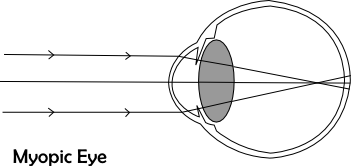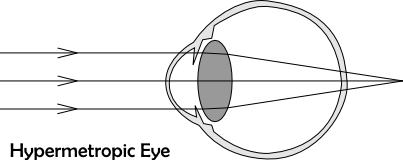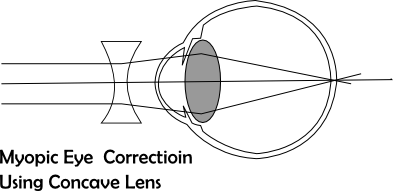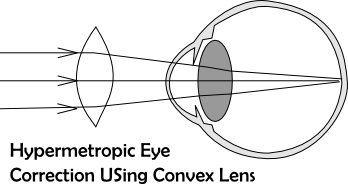| Line 5: | Line 5: | ||
'''Myopia''' | '''Hypermetropia''' | '''Myopia''' | '''Hypermetropia''' | ||
Myopia is also known as near-sightedness . | Hypermetropia is also known as far-sightedness. | Myopia is also known as near-sightedness . | Hypermetropia is also known as far-sightedness. | ||
| + | [[File:my.png]] | [[File:Hy.png]] | ||
In myopia , a person is not able to see distant objects clearly. | In hypermetropia , a person is not able to clearly see the nearby objects. | In myopia , a person is not able to see distant objects clearly. | In hypermetropia , a person is not able to clearly see the nearby objects. | ||
In this defect , lens are not able to produce sharp image of the distant objects on the retina instead the image is formed in front of the retina . | In this defect , image is formed behind the retina. | In this defect , lens are not able to produce sharp image of the distant objects on the retina instead the image is formed in front of the retina . | In this defect , image is formed behind the retina. | ||
| Line 10: | Line 11: | ||
Another cause can be the elongation of eye ball. | It may also be caused due to flattening of the eyeball . | Another cause can be the elongation of eye ball. | It may also be caused due to flattening of the eyeball . | ||
Myopia can be corrected by using concave lens of suitable focal length.| Hypermetropia may be corrected using convex lens of suitable focal length . | Myopia can be corrected by using concave lens of suitable focal length.| Hypermetropia may be corrected using convex lens of suitable focal length . | ||
| − | [[File:my.png]] | + | [[File:my-cor.png]] | [[File:hy-cor.png]] |
Latest revision as of 02:23, 29 April 2016
Hypermetropia and Myopia , both are refractive defects in vision and are nearly opposite in nature. Below are the differences between the two .



